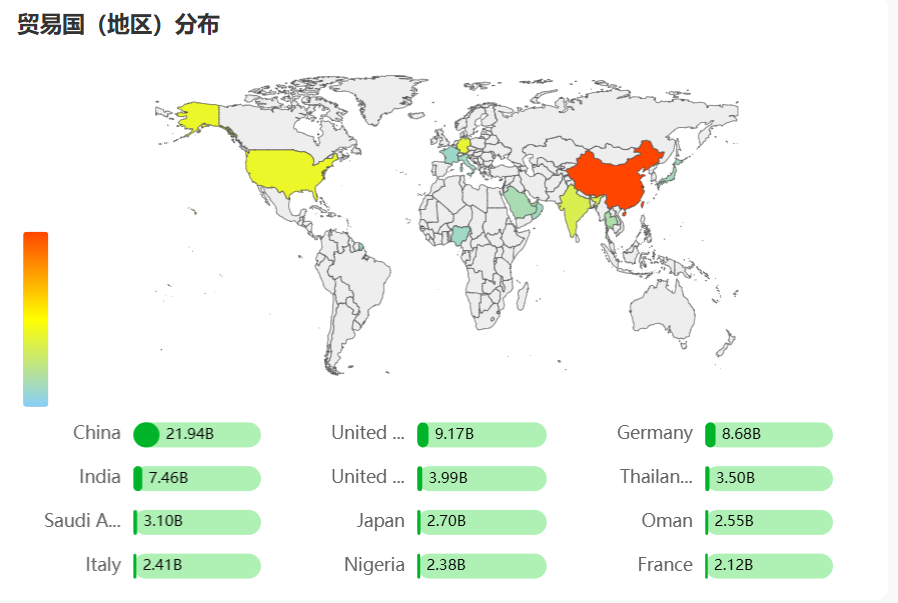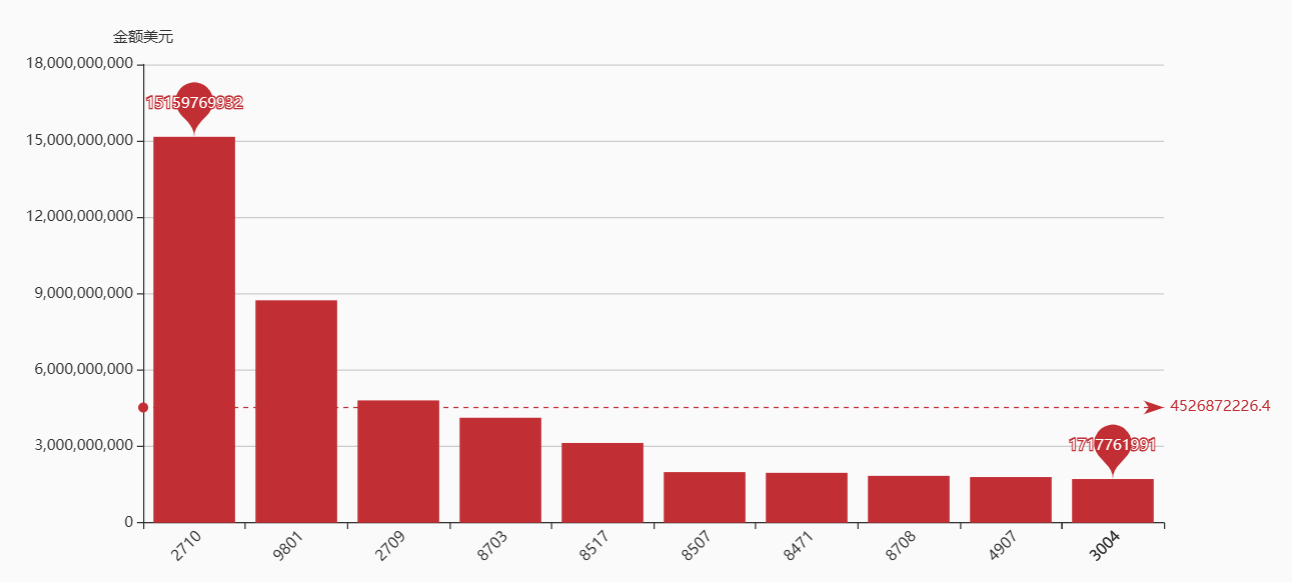Brazil's trade data reflects its status as a significant global player in the export of commodities. In 2022, Brazil was the world's largest exporter of items like soybeans and raw sugar, with China being the main destination for its exports. The country also imported substantial amounts of refined petroleum and motor vehicle parts, primarily from China and the United States. As of June 2024, Brazil experienced a slight decrease in exports but a notable increase in imports, maintaining a positive trade balance. This data underscores Brazil's active role in international trade and its interconnectedness with global markets.
Register to viewComprehensive Trade Flow Analysis
Market Demand Identification
Competitive Intelligence
Supply Chain Optimization
Regulatory Compliance
Economic Health Indicator

Top Export Partners (2023)
China: $104.3 billion (30.7% of total exports)
United States: $37.1 billion (10.9%)
Argentina: $16.7 billion (4.9%)
Netherlands: $12.1 billion (3.6%)
Mexico: $8.6 billion (2.5%)
Chile: $7.9 billion (2.3%)
Spain: $7.8 billion (2.3%)
Singapore: $7.4 billion (2.2%)
Japan: $6.6 billion (1.9%)
Canada: $5.8 billion (1.7%)12.
Top Import Partners (2023)
China: $64 billion (23.2% of total imports)
United States: $49.4 billion (18.6%)
Germany: $13.5 billion (4.6%)
Argentina: $12.6 billion (4.7%)
India: $9.78 billion (3.3%)
Japan: $8.78 billion (2.9%)
South Korea: $7.96 billion (2.6%)
Mexico: $7.3 billion (2.5%)
Italy: $6.6 billion (2.4%)
France: $6.4 billion (2.3%)
Mineral Fuels including Oil: $55.1 billion (16.2% of total exports)
Oil Seeds: $54 billion (15.9%)
Ores, Slag, and Ash: $35 billion (10.3%)
Meat: $22 billion (6.5%)
Sugar and Sugar Confectionery: $16 billion (4.7%)
Cereals: $15 billion (4.4%)
Iron and Steel: $14.6 billion (4.3%)
Machinery including Computers: $14.1 billion (4.1%)
Poultry Meat: $8.95 billion (2.6%)
Coffee: $8.86 billion (2.6%)
